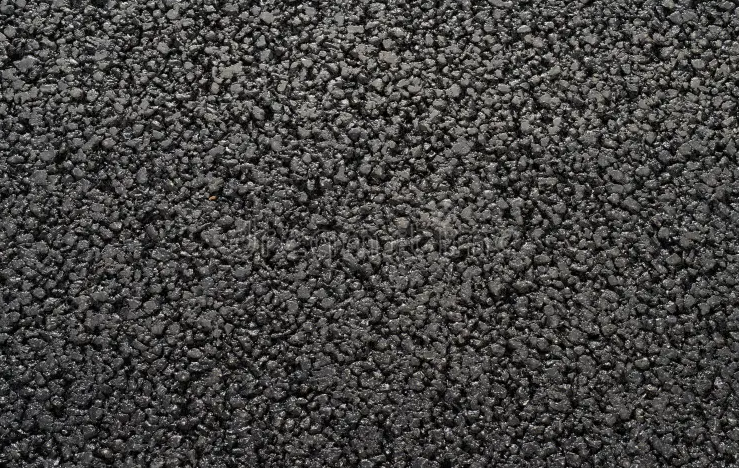Pure asphalt is one of the most widely used forms of asphalt due to its versatility, excellent waterproofing properties, and easy applicability in various construction and road projects. Known for its durability and efficiency, pure asphalt is essential in paving roads, waterproofing surfaces, and even in industrial applications. Below, we will explore what pure asphalt is, its key properties, and the various uses it has in construction and beyond.

What is Pure Asphalt?
Pure asphalt, also known as “straight-run asphalt,” is a refined form of asphalt that comes directly from the distillation of crude oil. It is a semi-solid substance that is black in color and contains a mixture of hydrocarbons. Unlike emulsified or modified asphalts, pure asphalt is not mixed with other materials like water or polymers but remains in its natural, concentrated state.
It is used as a binder in the production of asphalt mixtures for roads, pavements, and roofing applications. This pure form of asphalt offers superior waterproofing, bonding, and resistance properties, making it ideal for various industrial applications.
Properties of Pure Asphalt
Pure asphalt is prized for its specific properties that make it highly suitable for various applications:
- High Adhesion
- Pure asphalt has excellent adhesive properties, allowing it to bond effectively with aggregates such as sand, gravel, and stones. This makes it an ideal choice for road construction.
- Waterproofing
- One of the main properties of pure asphalt is its ability to prevent water penetration, which is why it is extensively used for waterproofing roofs, foundations, and other surfaces exposed to moisture.
- Durability
- Asphalt in its pure form is highly durable and can withstand heavy traffic loads and various weather conditions, making it perfect for high-traffic areas and roads.
- Temperature Resistance
- It has a high tolerance for temperature fluctuations. Whether in extremely hot or cold environments, pure asphalt remains stable, which is essential for road infrastructure.
- Viscosity
- Pure asphalt has a thick, sticky consistency, allowing it to act as an effective binder for mixtures and ensuring that roads and surfaces remain strong and intact over time.
Uses of Pure Asphalt
The versatility of pure asphalt means it is used in several different construction and industrial applications:
- Road Construction
- Pure asphalt is widely used in the production of asphalt concrete, a mixture of aggregates and asphalt binder that forms the surface of most roads, highways, and streets. It provides durability and smoothness for vehicle traffic.
- Roofing
- It is commonly used in roofing systems as a waterproofing material. It is applied in layers to form a protective membrane that keeps water from penetrating roofs and buildings.
- Pavement and Sidewalks
- Used in the creation of pavements and walkways, pure asphalt offers a durable surface that can withstand pedestrian traffic and weather elements.
- Waterproofing Foundations and Structures
- Pure asphalt is applied in foundations, basements, and other below-ground structures to prevent water penetration, ensuring the integrity and longevity of buildings.
- Industrial Applications
- It is used in various industrial sectors, including the manufacturing of pipes, coatings, and other products that require water-resistant materials.
Advantages of Pure Asphalt
Pure asphalt is a highly valued material due to its range of benefits, especially in construction and infrastructure projects. Below are some of the key advantages:
| Advantage | Description |
|---|---|
| Waterproofing | Excellent barrier against water, making it ideal for roofing and foundation work. |
| Durability | Long-lasting, capable of withstanding traffic loads, harsh weather, and temperature extremes. |
| Adhesion | Strong bonding properties with various aggregates, improving road and pavement quality. |
| Cost-Effective | Economical compared to other materials, offering a good balance of performance and price. |
| Versatility | Used in a wide variety of applications, from roads to industrial coatings. |
Differences Between Pure Asphalt and Other Types of Asphalt
While pure asphalt serves as the foundation for most asphalt products, other forms, such as modified asphalts, emulsified asphalts, and polymer-modified asphalts, involve the addition of materials to enhance specific properties like flexibility or ease of application.
- Modified Asphalt: Modified asphalts include additional elements like polymers or rubber to increase flexibility and improve performance in extreme temperatures. These asphalts are often used for more demanding applications like heavy-duty roads or high-performance roofing.
- Emulsified Asphalt: In this form, asphalt is mixed with water and emulsifiers, allowing it to be applied at lower temperatures. This is often used in road maintenance and repairs.
- Pure Asphalt: Pure asphalt, unlike modified or emulsified versions, is used primarily for its basic binding and waterproofing properties without any additives.
Pure asphalt remains a fundamental material in construction due to its strong properties and versatility. Whether for paving highways, waterproofing roofs, or creating durable industrial coatings, pure asphalt offers unmatched performance and reliability. Its ability to bond, resist water, and endure temperature changes makes it an indispensable material in modern infrastructure and construction projects.
In a world that demands more efficient and durable solutions, pure asphalt continues to be a cost-effective and trusted material for countless applications.






